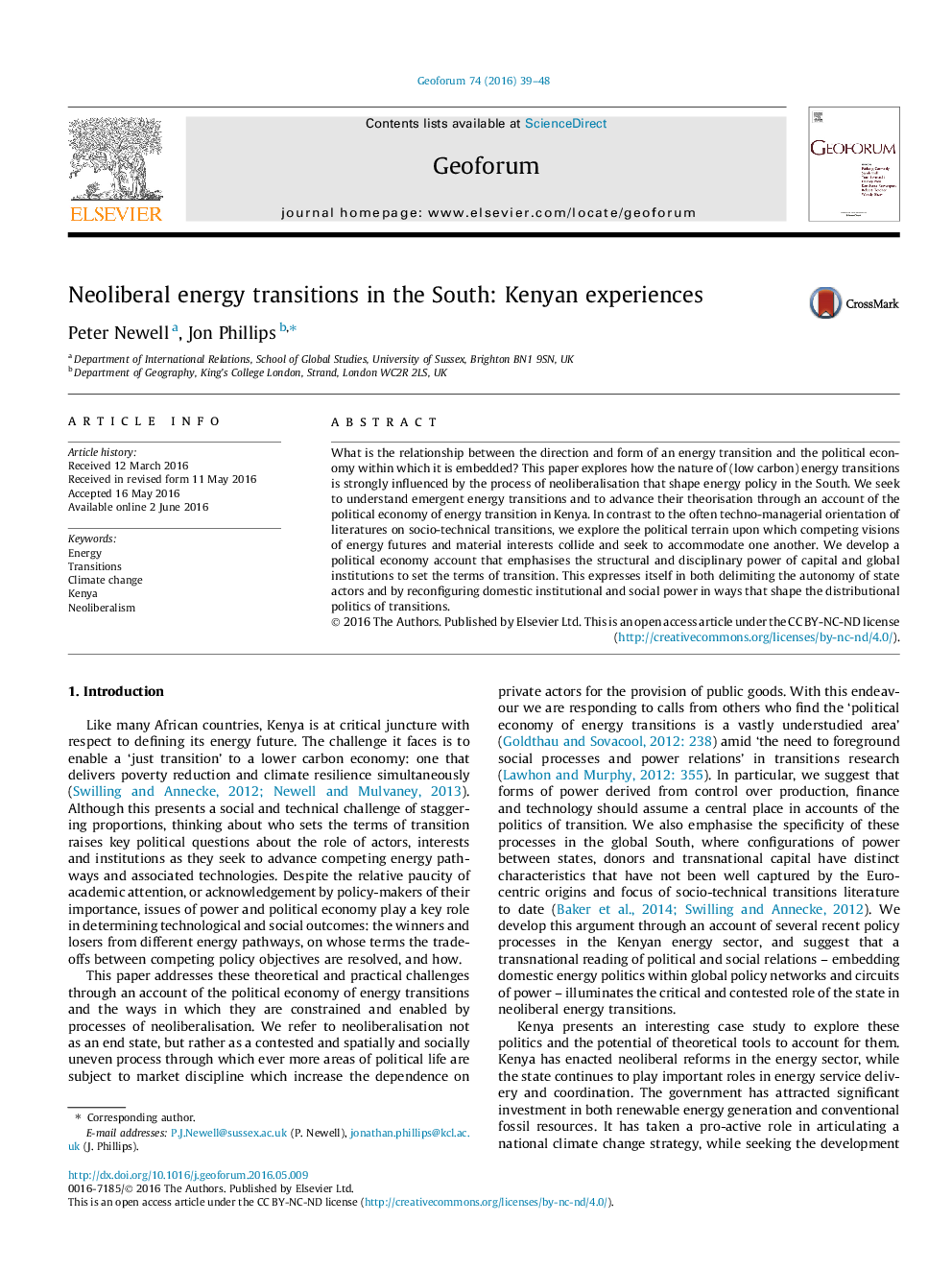| Article ID | Journal | Published Year | Pages | File Type |
|---|---|---|---|---|
| 5073441 | Geoforum | 2016 | 10 Pages |
â¢Energy transitions in the South occur within a global political economic context.â¢Neoliberal reforms in Kenya have enabled new conventional and renewable energy investments.â¢New energy systems that can serve existing political interests have seen growth.â¢Landscapes of social and political power are largely unchallenged by new energy technologies.â¢Critical analysis reveals trade-offs inherent to energy transitions.
What is the relationship between the direction and form of an energy transition and the political economy within which it is embedded? This paper explores how the nature of (low carbon) energy transitions is strongly influenced by the process of neoliberalisation that shape energy policy in the South. We seek to understand emergent energy transitions and to advance their theorisation through an account of the political economy of energy transition in Kenya. In contrast to the often techno-managerial orientation of literatures on socio-technical transitions, we explore the political terrain upon which competing visions of energy futures and material interests collide and seek to accommodate one another. We develop a political economy account that emphasises the structural and disciplinary power of capital and global institutions to set the terms of transition. This expresses itself in both delimiting the autonomy of state actors and by reconfiguring domestic institutional and social power in ways that shape the distributional politics of transitions.
